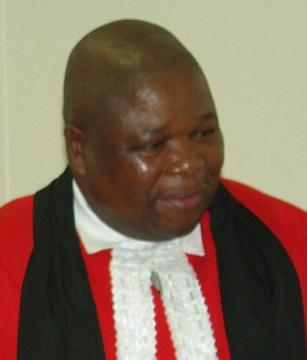CJ RULING UNDER SCRUTINY – PM
 Chief Justice Bheki Maphalala. (File pic)
Chief Justice Bheki Maphalala. (File pic)
MBABANE – It’s still full-steam ahead for ACC cases pending before courts despite the Chief Justice, Bheki Maphalala, labelling some sections of the Prevention of Corruption Act as unconstitutional.
This was said by the Prime Minister, Sibusiso Barnabas Dlamini, who assured the nation that pending matters handled by the Anti-Corruption Commission would still see the light of day, as long as they are included in the court roll. He said this in response to questions thrown at him by the media, which basically wanted to know how the judgment would affect both the nation and the operations of the ACC.
Dlamini emphasised that the pending cases were in no way affected by the judgment the CJ issued recently in the matter involving axed Minister of Commerce, Industry and Trade Gideon Dlamini and his Nigerian business associate Fred Ngeri.
“The ACC is in office and the commissioner is still investigating some cases and also prepared to go to court if they are given the opportunity,” said the PM.
Dlamini made these remarks in Cabinet during a press briefing where the media asked him on government’s position following the epic judgment issued about two weeks ago.
Speaking on the judgment, the PM said government was still analysing it with the Office of the Attorney General (AG).
“The judgment has many pages and we have to carefully read it upside down and inside out,” said Dlamini.
In venacular Dlamini said; “Kufuna siyibhekise phansi, etulu, naseceleni”. He said after that, government would be in a position to state what it really meant and what it represented for the future of pending cases.
He said at the moment, it was difficult to interpret it but the AG and other legal minds were on it.
He reiterated that the many pending corruption cases were not affected by Maphalala’s judgment.
“The ACC, including the commissioner, is still in office, investigating and prepared to go to court if the opportunity is given,” said Dlamini.
In his judgment, the CJ found that the sections of the Prevention of Corruption Act in which the ACC derives its powers when arresting suspects on corruption-related charges were unconstitutional.
This had raised the question as to what would happen to the over 100 cases of corruption that are currently pending in High Court. CJ Bheki Maphalala said Section 11, 12 and 21 of the Act undermined and contravened the principle of audi alteram partem, with regard to the entry and searching.




 del.icio.us
del.icio.us Digg
Digg
Comments (0 posted):